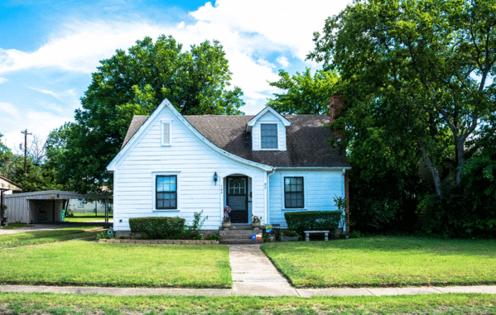What first-time homebuyers need to know before buying a fixer-upper
Published in Business News
If you’re a first-time homebuyer with a tight budget, should you consider a fixer-upper? It depends whether you’re willing to be uncomfortable — possibly for a long time.
For some, buying a fixer-upper is a great way to build equity and customize their home. For others, it’s a source of inescapable stress.
“Maybe they’ve never even painted walls before, so it’s very overwhelming,” said Amy Dahlin, a Greater Seattle-area real estate agent and DIY renovator.
With the median price for a home in King County, Washington, nearing $1 million, the range of homes accessible to first-time homebuyers seems dismal. Options for first-time homebuyers are mostly narrowed to condos, town homes and detached homes that need work.
Some buyers choose to do work on a detached fixer-upper because it’ll build equity the fastest, real estate agents say. But that doesn’t mean a fixer-upper is the best choice for everyone.
Fixer-uppers require time, money and patience.
Even if a house is livable and needs no immediate work done, homebuyers need to be willing to live in a house that looks rundown or has frustrating features, like ailing cabinets or sinks, Dahlin said. Buyers could be stuck with those quirks for a while if they have no leftover money after a down payment.
“Most of these people are buying at the top of their price points, so they don’t have extra funds to really do any (renovations) right then,” she said.
If buyers have identified something they want to change immediately, they should factor that into their budget, Dahlin said. It’s common for buyers to get quotes from contractors or electricians before buying a home.
“Then you have a real number to work with instead of something you Googled,” she said.
First-time homebuyers don’t often invest in a house that needs major work done, said Sherief Elbassuoni, a Seattle-area real estate agent. If a house isn’t safe or livable, it could be difficult to get a loan.
“The sweet spot for most first-time buyers is a home that needs some cosmetic work — things like paint, flooring, carpet or landscaping,” he said. “It needs a little bit of love, but not a full renovation.”
Those renovation costs could be rolled over into a mortgage loan, but that’s not common in the Seattle area, where many sellers still have the upper hand, said Robert McAllister, a senior mortgage consultant at the lending company West Seattle Mortgage.
Government-backed loans that finance both the property and the cost of renovations, called FHA 203(k) loans, often take much longer to close than a typical FHA loan.
“Sellers still have options,” McAllister said. “If a seller is looking at five offers, they’re not taking that one.”
FHA 203(k) loans also have higher closing costs and interest rates, typically 0.75% to 1.0% higher than the typical rates for standard FHA loans.
McAllister hasn’t had a client use an FHA 203(k) loan in years for these reasons, he said. He recommends they get in the house with a regular loan and finance the renovations later using a home-equity loan or refinancing into a renovation loan.
“If you don’t own the house, you can't do the remodel,” he said.
Some homeowners attempt to tackle renovations themselves to save money.
A trend of DIY home renovations on TikTok shows young couples taking their homes from affordable to adorable, with arched doorways and chic cabinets added to bland bathrooms.
Dahlin said doing home renovations yourself is a great way to save money, but she cautioned against doing any major or dangerous renovations without experience.
If DIY renovations are done incorrectly, homeowners could be left with an expensive mistake. Unlike when professional services make mistakes, insurance won’t always cover damage from DIY projects.
“Be realistic about what you’re comfortable with,” Dahlin said. “Don’t think you're going to get on YouTube and figure this out first try.”
©2025 The Seattle Times. Visit seattletimes.com. Distributed by Tribune Content Agency, LLC.












Comments